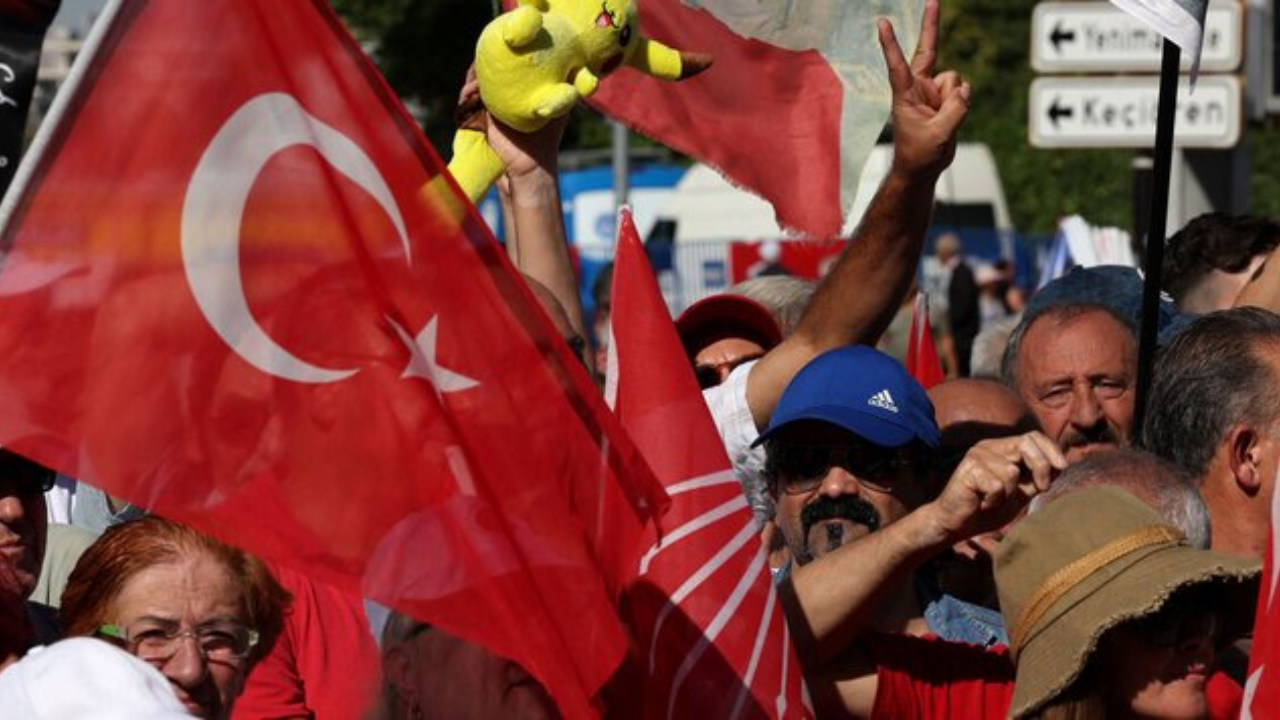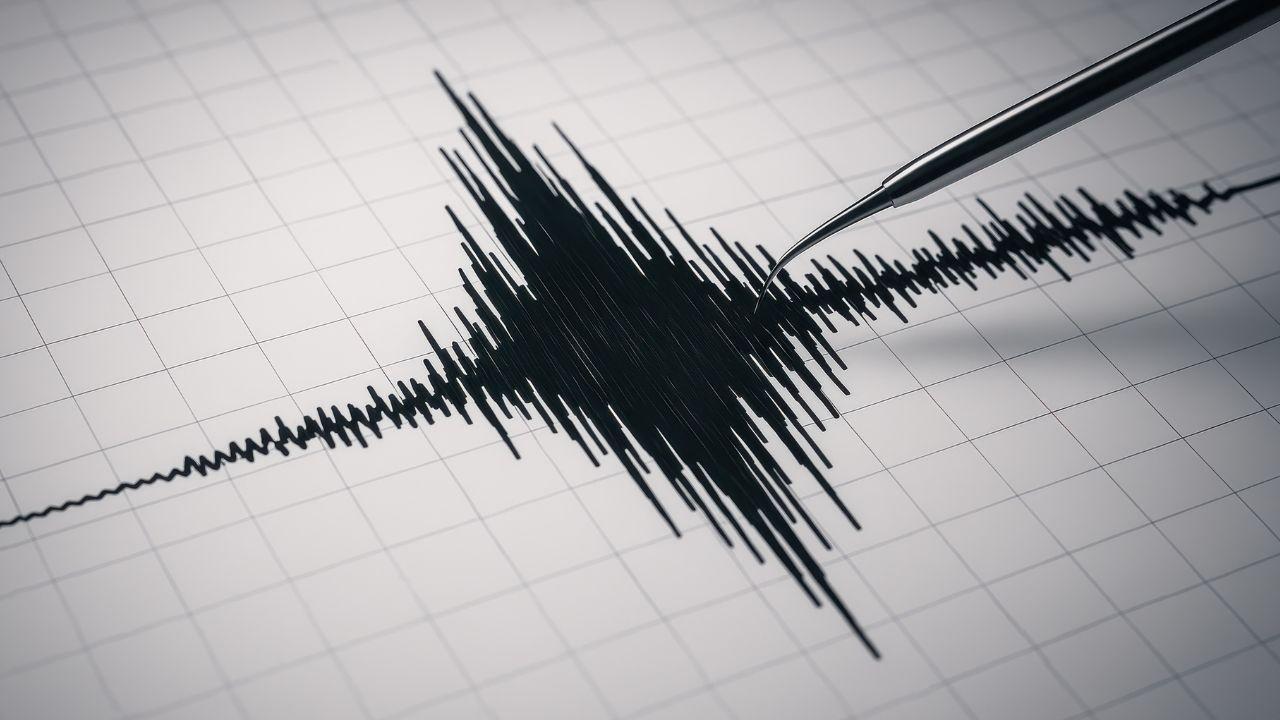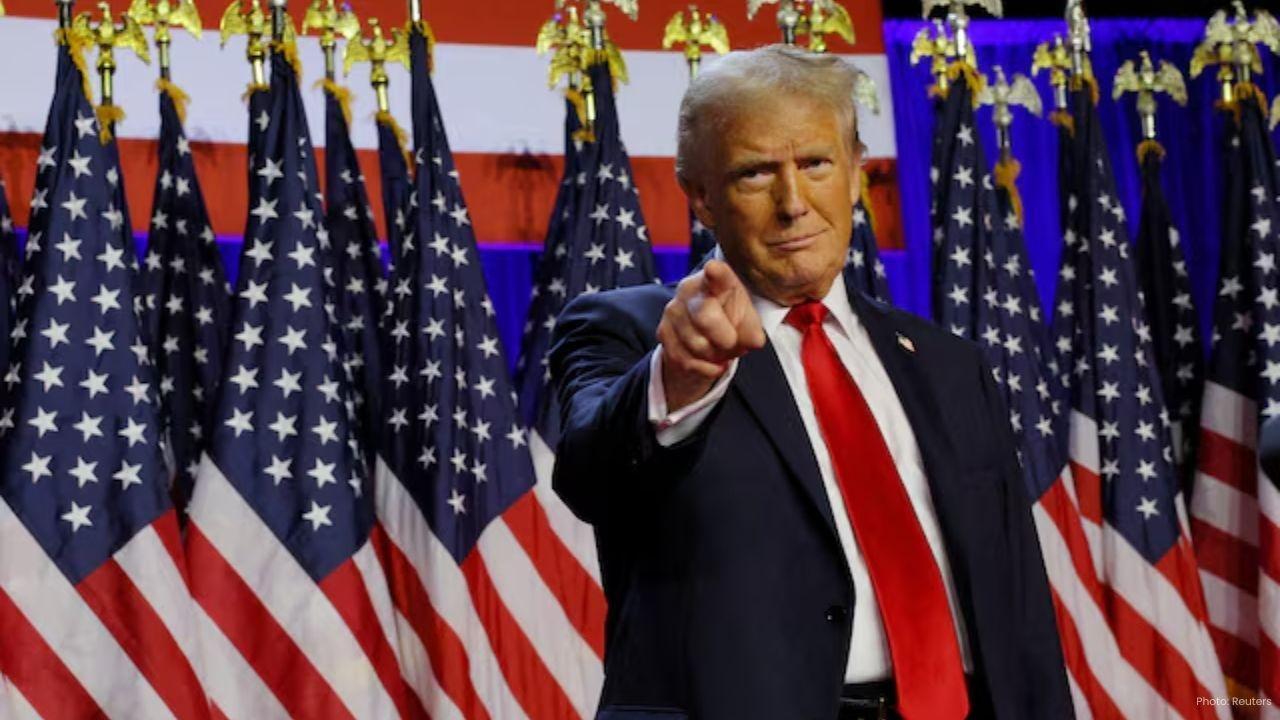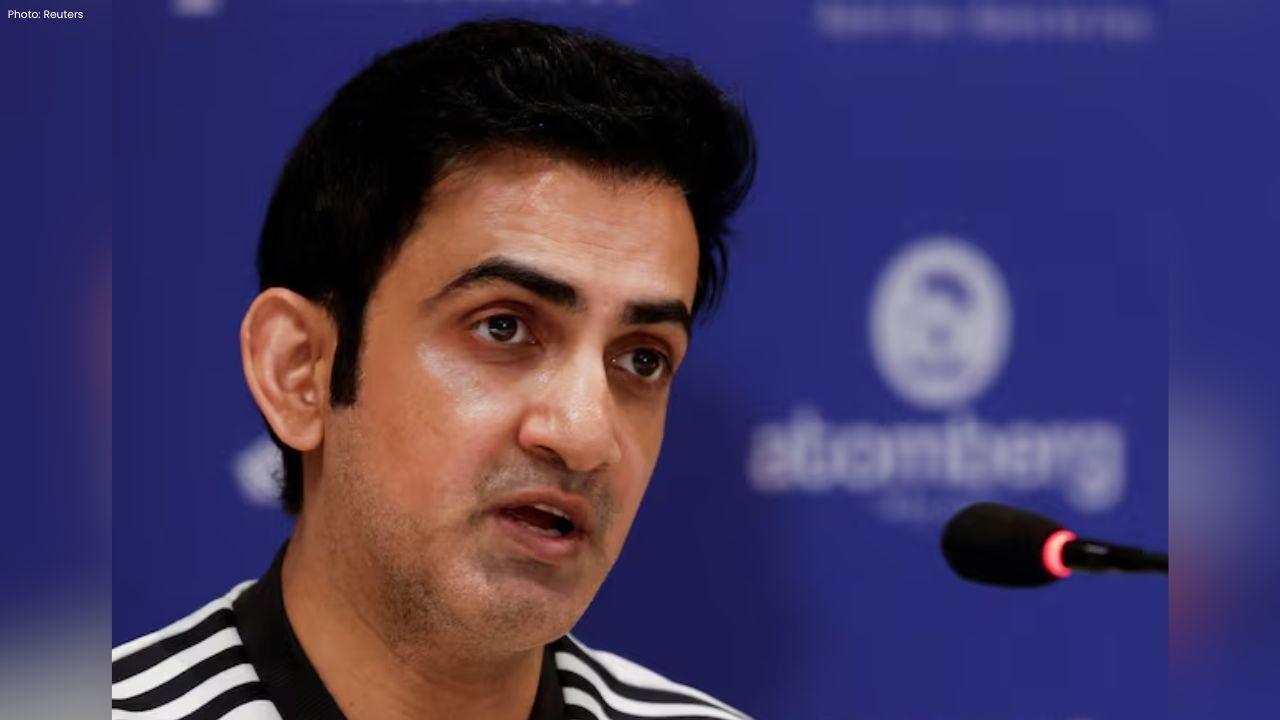
Post by : Naveen Mittal
Thousands of people gathered in Turkey’s capital to protest a growing political crisis that threatens the future of the country's democracy. The legal crackdown on Turkey’s main opposition party, the Republican People’s Party (CHP), has sparked fears that the government is undermining democratic norms, silencing dissent, and trying to stay in power by manipulating the judicial process.
The protests come after a court decision on whether to invalidate the 2023 congress of the Republican People’s Party over alleged procedural irregularities. This ruling, expected soon, could reshape the opposition party, rattle financial markets, and influence the timing of the general election set for 2028. It could even be delayed, adding uncertainty to Turkey’s political future.
The legal crackdown on Turkey’s main opposition party has deepened over the last year. Turkey’s government has detained more than 500 people, including 17 mayors from CHP-run municipalities. These actions have been framed as part of corruption investigations, but many see them as politically motivated attempts to weaken opposition voices.
The crackdown has also involved hundreds of CHP members being jailed and investigated under accusations of corruption and alleged terrorism links. Among those affected is Istanbul’s popular mayor, Ekrem Imamoglu, who is President Erdogan’s key political rival. His arrest earlier this year sparked the largest protests Turkey has seen in a decade.
Many fear that these actions are part of a broader attempt to exclude opposition leaders from elections and prevent them from challenging the government. Critics argue that these efforts undermine Turkey’s democratic institutions and the rule of law.
The upcoming court ruling on whether to invalidate the 2023 congress of the Republican People’s Party has raised concerns across political and financial circles. If the court rules against the party, it could not only weaken CHP but also send a message to other political groups about the risks of opposing the government.
Financial markets have already responded to the political unrest. Previous protests, including Imamoglu’s arrest, caused sharp selloffs in the Turkish lira and other assets. If the crackdown intensifies, investors may become more cautious, affecting Turkey’s economy at a time when it is already facing inflation and external pressures.
Beyond the economy, the ruling could affect voter turnout and public trust. Many citizens believe that the government’s actions are designed to rig elections and prevent fair competition, fueling further protests and public unrest.
The protests in Ankara have drawn tens of thousands of people from across Turkey, all united in opposition to what they see as unjust actions against their political leaders. Rally organizers and participants have repeatedly said that the legal crackdown on Turkey’s main opposition party is a direct threat to freedom and democracy.
CHP leader Ozgur Ozel spoke to the crowd, accusing the government of trying to cling to power by suppressing political dissent and ignoring democratic principles. He called for snap elections, arguing that only through free and fair elections can the people’s voices be heard.
"This case is political. The accusations are slander. Our comrades are innocent. What’s being done is a coup — a coup against the future president, against the future government. We will resist, we will resist, we will resist," Ozel said during his address to the crowd.
The message was clear: the opposition and its supporters are ready to stand up for democracy, even in the face of intimidation and legal attacks.
In a heartfelt letter read aloud during the protests, Ekrem Imamoglu, jailed pending trial, accused the government of trying to pre-determine the outcome of future elections by sidelining political rivals. His letter called the government’s actions an attempt to suppress democracy through politically motivated judicial processes.
"The era of ‘I’ in this country will end, and the era of ‘we’ will begin. One person will lose, and everyone else will win," Imamoglu wrote, as the crowd responded with cheers and chants supporting him as a future leader.
His words have resonated with many Turks, reinforcing concerns that the government’s actions threaten not just one party but the very foundations of democratic governance.
Despite the mounting protests and criticism, Turkey’s government maintains that the judiciary operates independently and that its actions are based on legitimate corruption investigations. Officials argue that they are upholding the law and combating wrongdoing within municipal governments.
President Erdogan’s administration points to corruption probes and links between certain opposition figures and extremist groups as justification for the arrests. They deny that these actions are politically motivated, even as international human rights organizations and opposition voices paint a different picture.
The legal crackdown on Turkey’s main opposition party has not gone unnoticed globally. Human rights groups, foreign governments, and international media have expressed concern over the implications for democracy and civil liberties in Turkey.
European leaders have urged restraint and called for free and fair elections. The United Nations has warned that politically motivated prosecutions can create long-term instability and hinder governance reforms.
Financial markets are also watching closely. The uncertainty surrounding Turkey’s political future, combined with ongoing economic pressures like inflation and currency volatility, could discourage foreign investment and hamper growth.
The current situation in Turkey is a stark reminder that democracy is fragile. The legal crackdown on Turkey’s main opposition party highlights how political power can be abused to silence dissent and reshape institutions meant to protect citizens’ rights.
For ordinary Turks, this struggle is not about ideology alone but about the right to vote, speak freely, and challenge those in power without fear of persecution. The protests reflect a broader desire for transparency, accountability, and fair governance.
The world is watching. Turkey’s ability to maintain democratic norms will influence how other nations perceive governance, judicial independence, and human rights protections in the region.
As the court prepares to rule on the validity of CHP’s 2023 congress, all eyes are on Turkey’s political future. If the government continues to sideline opposition voices, it may face escalating protests and declining international confidence.
However, if democratic institutions are allowed to function freely, Turkey could set an example of resilience and respect for rule of law. Either way, the coming months will be decisive, shaping not only the country’s political trajectory but also its role in global affairs.
The legal crackdown on Turkey’s main opposition party has thrown the nation into a political crisis that threatens democracy, judicial independence, and public trust. Tens of thousands of people have taken to the streets, demanding justice and calling for snap elections.
With economic instability on the rise and the judiciary’s role under scrutiny, Turkey’s political future is at a crossroads. How the government handles this crisis will impact not only domestic affairs but also Turkey’s standing in the world.
As citizens and global observers alike await the court’s decision, one message rings clear: democracy must be defended, and voices of dissent must be heard if Turkey is to thrive as a fair and just society.










Mavericks Triumph Over Trail Blazers in Overtime, Led by Gafford's Heroics
The Mavericks overcame the Trail Blazers 138-133 in overtime, as Gafford's season-high points ignite

Rockets Secure Overtime Victory Against Magic with Durant’s Heroics
In a thrilling overtime match, the Rockets edged the Magic 117-113, thanks to Kevin Durant's stellar

Moses Moody's Stellar Performance Secures Victory for Warriors Against Pelicans
Moses Moody scored 32 points, leading the Warriors to a 124-106 win over the Pelicans despite Curry'

Gautam Gambhir Supports Eden Gardens Pitch After India’s Setback Against South Africa
Gautam Gambhir defended the Eden Gardens pitch, claiming it tested skills rather than being unfair a

South Africa Achieves Historic Victory Over India at Eden Gardens
In a stunning upset, South Africa clinched a historic win against India in Kolkata, as the hosts fel

Curry Powers Warriors to Nail-Biting 109-108 Victory Against Spurs
Stephen Curry's 49 points propel the Warriors to a dramatic 109-108 NBA Cup triumph over the Spurs,